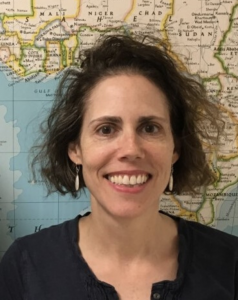Presented By: Institute for Social Research
Status Exchange in Same-Sex and Different-Sex Newlywed Couples
Kara Joyner

Partners in same-sex coresidential unions are less likely than partners in different-sex coresidential unions to resemble each other on demographic characteristics such as age, race/ethnicity, and educational attainment. Using recent data from the American Community Survey, this study uses conditional logit models to examine assortative matching patterns among same-sex and different-sex newlywed couples defining marriage markets in a variety of ways. Regardless of how markets are defined, same-sex male couples are less likely than same-sex female couples and different-sex couples to match on race and age. These patterns are somewhat consistent with the notion that individuals seeking a same-sex partner must cast a broad net due to a small number of available partners. This study extends prior research on this topic by directly examining the extent to which partners in the three union types trade valued traits (i.e., compensating differentials). The results suggest that gay men use status exchange as a strategy to find a marriage partner who is similar in terms of overall trade values.
BIO:
Kara Joyner is a Professor of Sociology at Bowling Green State University and served as Associate Director of the Center for Family and Demographic Research for six years. Her research addresses how a variety of factors influence the formation and dynamics of relationships, including friendships, romantic/sexual relationships, cohabiting relationships, and marriages. It also considers how different types of relationships influence well-being and identifies factors that moderate this influence. She has conducted much of this research using data from the Add Health. As a Principal Investigator on an NICHD-funded subproject for a P01 (directed by H. Elizabeth Peters), she recently compared estimates of fertility across major U.S. surveys and developed population-based estimates of male fertility.
PSC Brown Bag seminars highlight recent research in population studies and serve as a focal point for building our research community.
Michigan's Population Studies Center, established in 1961, has a rich history as an interdisciplinary community of scholars in population research and training. PSC is part of the Institute for Social Research (ISR).
BIO:
Kara Joyner is a Professor of Sociology at Bowling Green State University and served as Associate Director of the Center for Family and Demographic Research for six years. Her research addresses how a variety of factors influence the formation and dynamics of relationships, including friendships, romantic/sexual relationships, cohabiting relationships, and marriages. It also considers how different types of relationships influence well-being and identifies factors that moderate this influence. She has conducted much of this research using data from the Add Health. As a Principal Investigator on an NICHD-funded subproject for a P01 (directed by H. Elizabeth Peters), she recently compared estimates of fertility across major U.S. surveys and developed population-based estimates of male fertility.
PSC Brown Bag seminars highlight recent research in population studies and serve as a focal point for building our research community.
Michigan's Population Studies Center, established in 1961, has a rich history as an interdisciplinary community of scholars in population research and training. PSC is part of the Institute for Social Research (ISR).